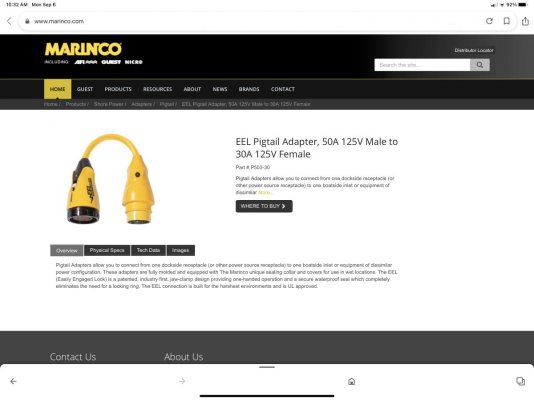Easternshore
Senior Member
To EEL or not, that is the question. The electric service at the new marina is a single 50 AMP outlet. We have a single 30 AMP system and cord thus need an adapter. Is the EEL adapter worth the extra $50 vs the standard twist adapter? I don’t want to be penny wise and pound foolish but is the EEL adapter worth the extra $50?
Thanks to all replies!
Thanks to all replies!

